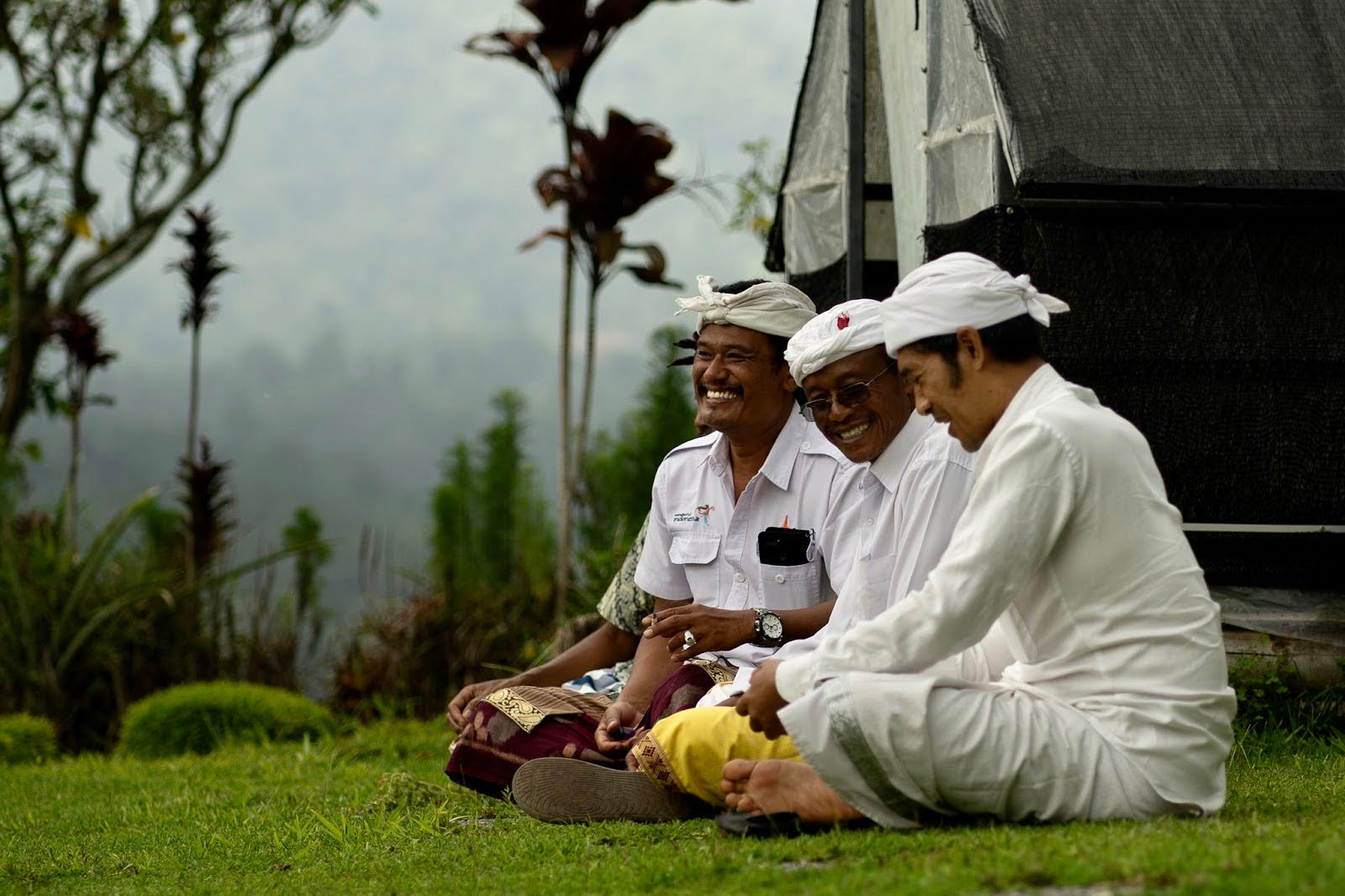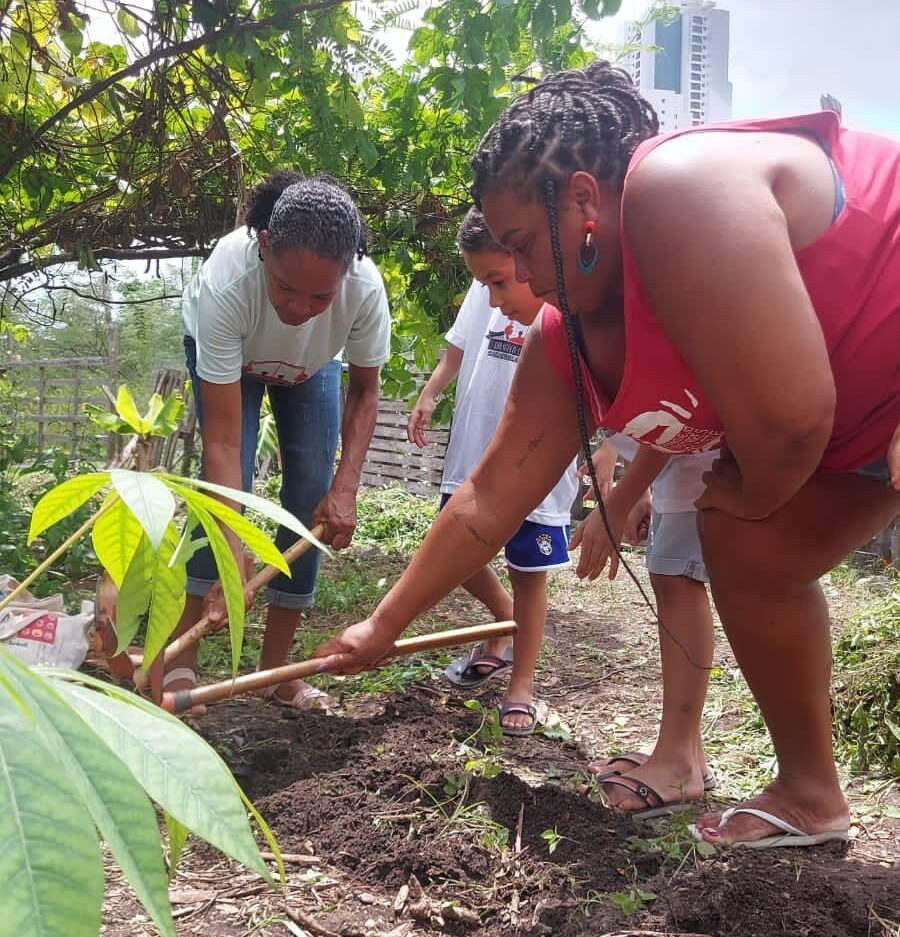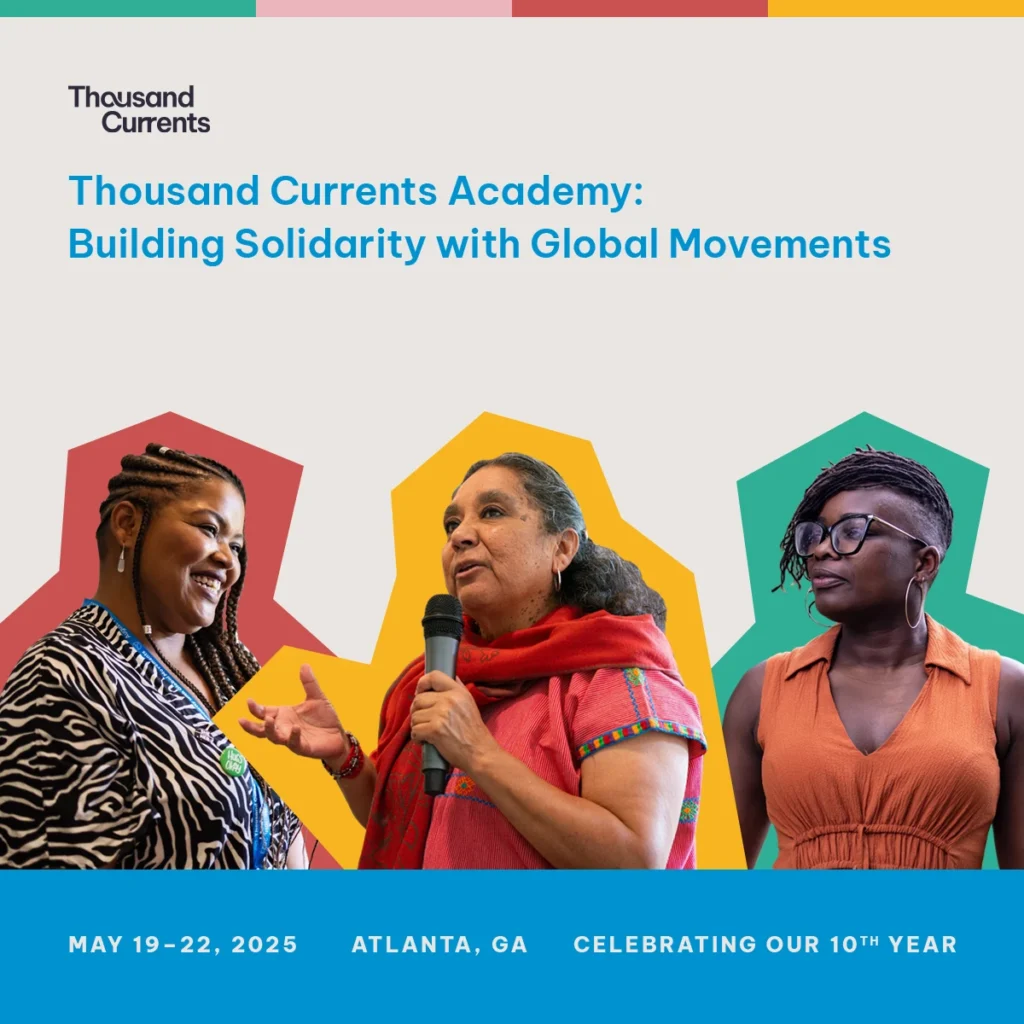Fighting Back in Perú: Tactical Partner OjoPúblico
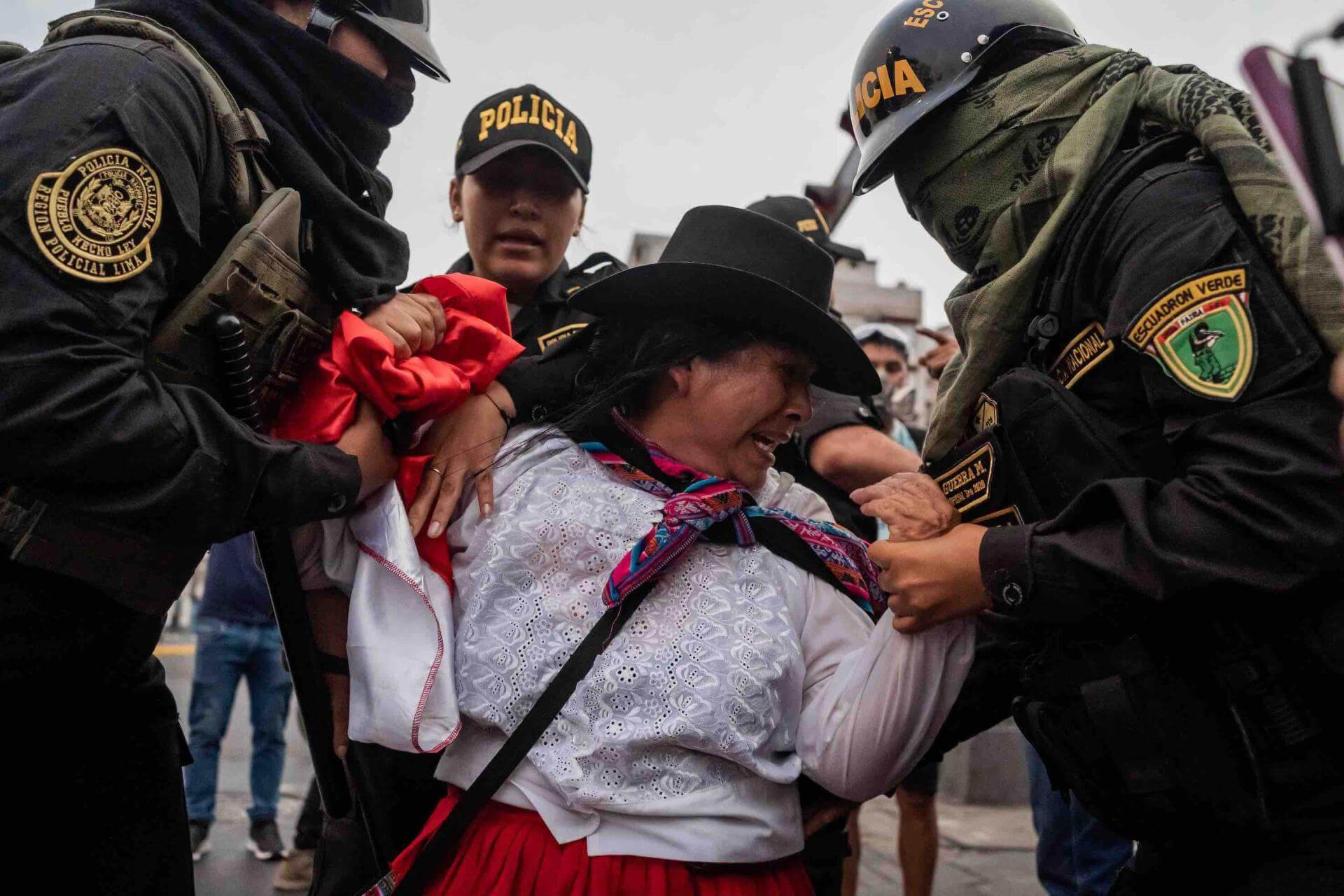
A closer look at the non-profit media organization that promotes transparency, accountability, and access to public information.
At Thousand Currents, our values guide how we work, partner, and collaborate with others. When it comes to experimentation and interdependence, we believe that there are multiple ways of knowing, and interconnected issues intertwine our present and future. This translates into supporting groups that might appear thematically different, and yet are working towards the same just and equitable future we all want.
OjoPúblico is doing just that by using investigative journalism as an important tactic to strengthen climate justice, food sovereignty, and economic justice in Perú and in Latin America. They play a crucial role in telling stories often ignored by mainstream media, covering a wide array of topics, in-depth analysis, and reporting on sensitive and critical issues.
It may be worthwhile to note that journalism-focused philanthropy has nearly quadrupled since 2009. While community foundations are now becoming key partners in building and sustaining local news and information, the situation is a lot more bleak, especially in Latin America. Upholding free press has been a very real challenge in Perú, and limited resources are creating a roadblock for authentic journalism to thrive, especially in the Global South. OjoPúblico believes they have a crucial role to play as a pillar of democracy and raising the voices of those who have been exposed to abuse of corporate power.
We spoke with David Hidalgo Vega, Executive Director, and Sara Saenz, Sustainability Manager, to talk more about OjoPúblico’s work. This interview has been edited for clarity and flow.
Tell us about OjoPúblico.
We are an independent multimedia news portal that offers unbiased information through a unique membership model. Our members don’t pay to get access to exclusive content–all content is ad free and available for anyone to view. Our members pay over and above that; they contribute because they believe it is worthwhile to do so and they want to contribute to our sustainability. This is why we call it a membership model and not a subscription model. A member is a supporter of the kind of journalism OjoPúblico endorses. We offer unbiased information, without any interests except taking into account the interests of the citizens of this country and this region.
There’s an escalating problem of misinformation in Peru, so countering fake news is one of the core lines of the work that we are doing. We report on a wide array of topics: human rights violation and abuse, the impact of extractive industries on the Amazon area and how it affects women and girls, environmental degradation, illegal mining, corruption, and more. We also train journalists on investigative reporting and fact-checking.
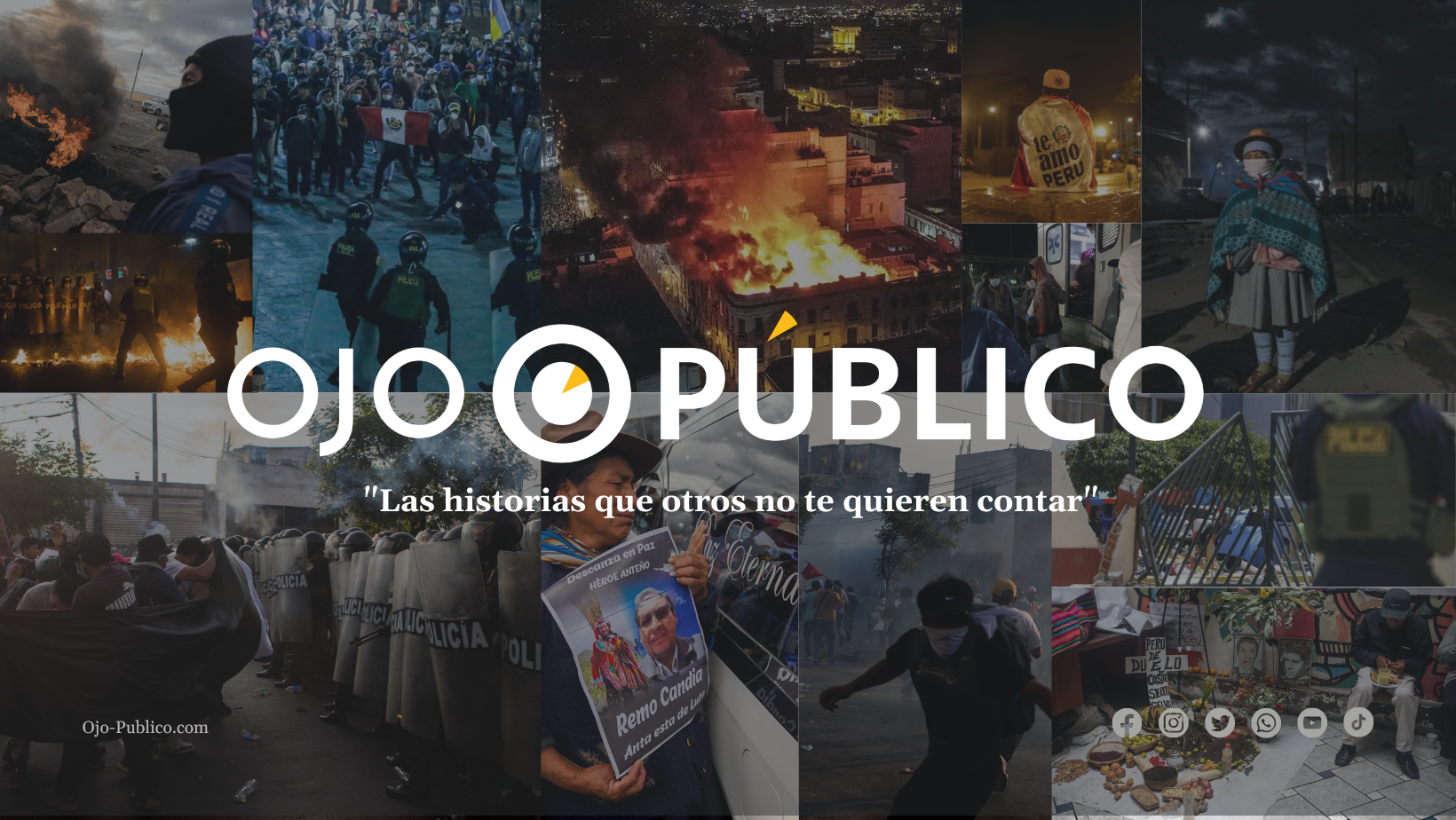
An image from OjoPúblico’s Facebook page with Spanish text that says “las historias que otros no te quieren contar” (Stories that others do not want to tell you)
What do you want funders to understand about supporting independent journalism in Perú and Latin America?
We are a communication outlet; we do not do advocacy. But at the end of the day, with our investigative pieces and the way we visualize and cover different topics, we have the power to advance the advocacy goals of other like-minded organizations. We know that a lot of our reports and findings indirectly help those advocating for human rights and ecological rights at the local or international level.
And the key thing we want donors to understand is that we are facing a very unequal situation right now. We have very little resources to do the difficult job of exposing the abuse of power and holding governments and corporations accountable. We do not even have 0.5% of the resources that most powerful groups have, including the biggest companies involved in different conflicts of interests, extremist groups supported by far-right parties and even organized crime cartels. Some of them have a robust media system of their own to categorically disseminate misinformation and distorted truths. This situation has compromised the public perception about some of the largest news channels and newspapers in the country. The most powerful groups have the resources and infrastructure for more than 10 radio stations that work 24 hours a day. Yet, independent journalism portals like ours are fighting against this infrastructure, challenging their corrupt practices every single day.
How risky is it to be a journalist in Perú right now?
Perú is going through a national crisis. Since the ouster of President Pedro Castillo in December 2022, protests and roadblocks in the nation have disrupted traffic and transit. Public anger over the government’s failure has led to repeated clashes between demonstrators and security forces leading to massive arrests and increasing police abuse. It is the worst violence in the country in two decades and threatens to destabilize the Latin American region.
Recently we held a meeting of independent journalists to present a public demonstration of solidarity with a colleague who had been harassed at home. Threats against the physical integrity and life of journalists have increased as have death threats. At OjoPúblico we take several precautionary measures, including purchasing security and protection equipment like helmets, to keep each other safe. The situation is escalating in such a dramatic way that journalists who are covering the protests are using safety equipment similar to war correspondents. There have been many incidents in which law enforcement authorities have fired at the general population in an indiscriminate manner as a way to control demonstrators. It could happen against the journalists who have been covering this news too. We are facing a critical challenge of strengthening the journalists’ teams who are covering this news, risking their lives in the interests of fellow citizens and their right to know the truth.
What are some of your tactics to reach people in the midst of all these challenges?
In the Andean and the Amazonian areas, which are very large, there is little access to information, resources and media. In the last few years, we have applied a strategy wherein we generate fact checking content, translate them to Indigenous languages and create partnerships with regional radio stations. We have done this in up to 5 Indigenous languages, and this expansion is necessary in a country like Perú, where at least 4 million people do not speak or consider Spanish as their native language.
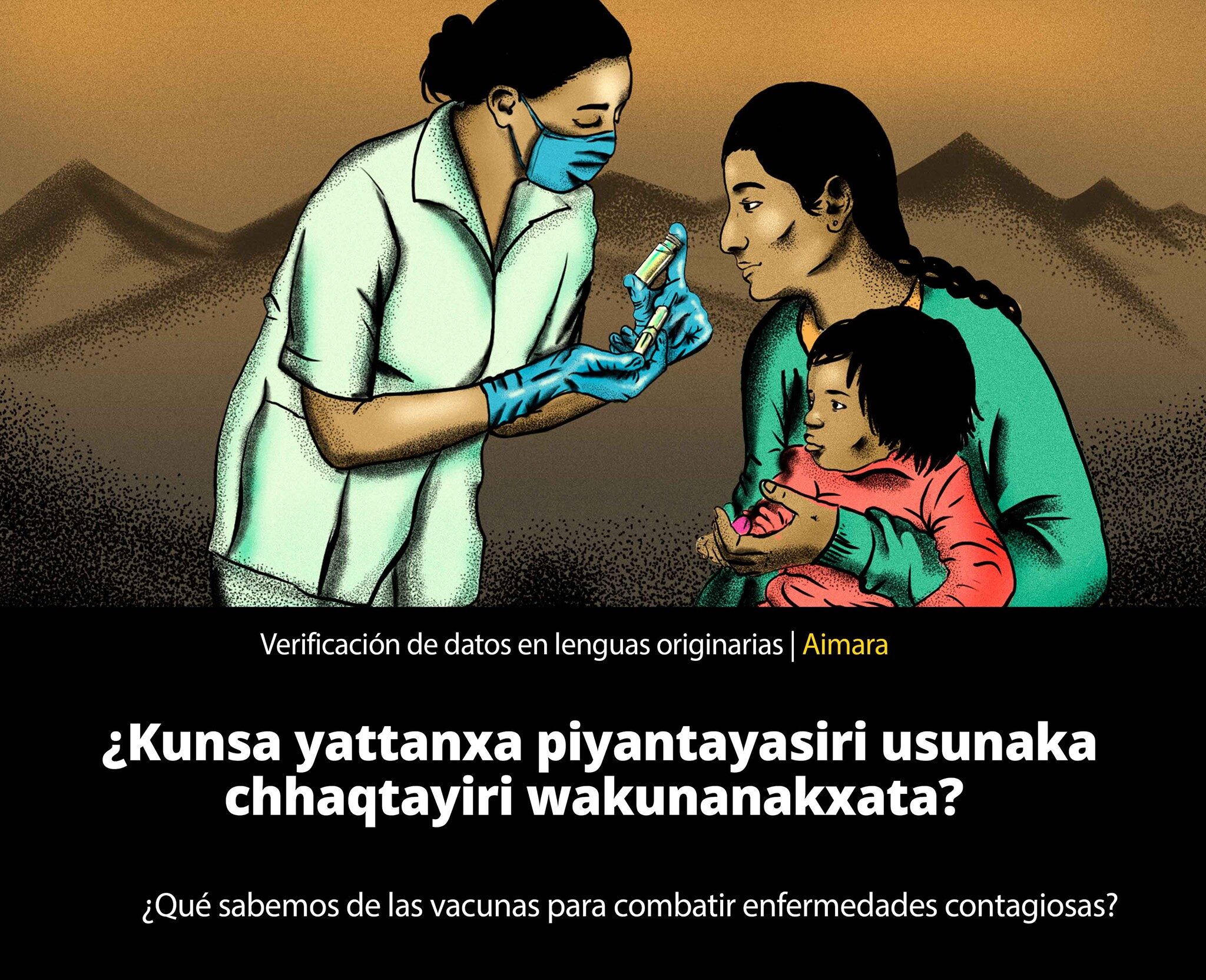
A poster from OjoPúblico’s #ChequeosEnLenguas, a campaign published in different Indigenous languages. This vaccine awareness spot is in Aymara, a Native American language with over one million speakers in Bolivia and Perú.
During the pandemic, we disseminated information on health topics, did verification work in Indigenous languages, and are now countering fake news in this area amid the political crisis. We have worked with Indigenous communicators so that they can use our fact checking methodology. We have been coordinating a national network that has approximately 30 news outlets which do or spread fact checking work in 8 different regions of the country. We have also recently expanded our training to young people by reaching out to teachers in high schools and teaching them this methodology so that they can pass it on to their students in high schools, not necessarily to become journalists but so that they have the tools they need to prevent themselves from becoming part of misinformation.
Related Stories
